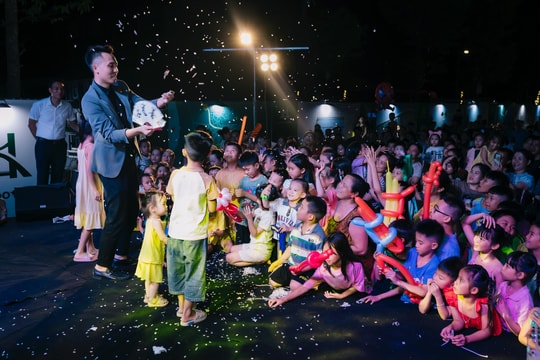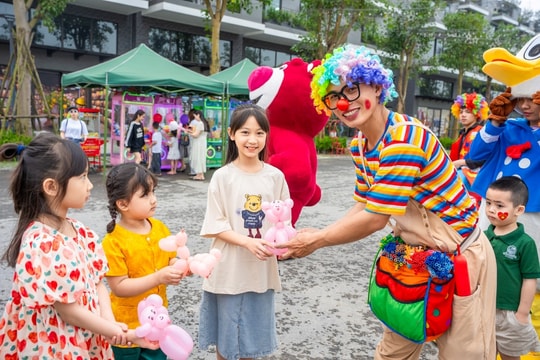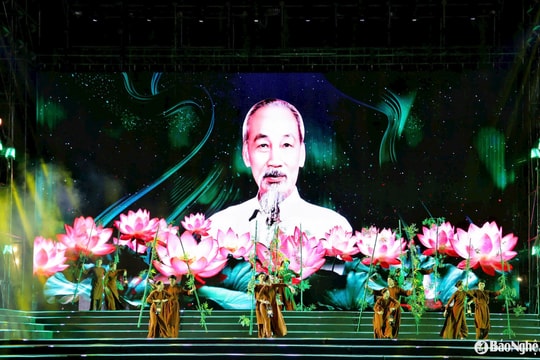Nghe An aims for a safe, healthy, and culturally rich festival season
(Baonghean.vn) - In 2023, Nghe An province will organize 29 festivals, of which 20 will take place in the Spring (January-March of the Lunar calendar). Nghe An Newspaper had an interview with Mr. Bui Cong Vinh - Deputy Director of the Department of Culture and Sports about related issues.
PV: For a long time, festivals, especially traditional festivals, have played a very important role in the cultural and spiritual life of the Vietnamese people in general and the people of Nghe An in particular. Could you please tell us more about this?
Mr. Bui Cong Vinh:Our ancestors have a saying: “Only with a story can we translate it into a game” - meaning that traditional festivals have their deep roots. All traditional festivals have the value of going back to the source. That is the natural origin from which humans were born and are still an organic part; the origin of the ethnic community; the country; the village, ancestors, the cultural origin…
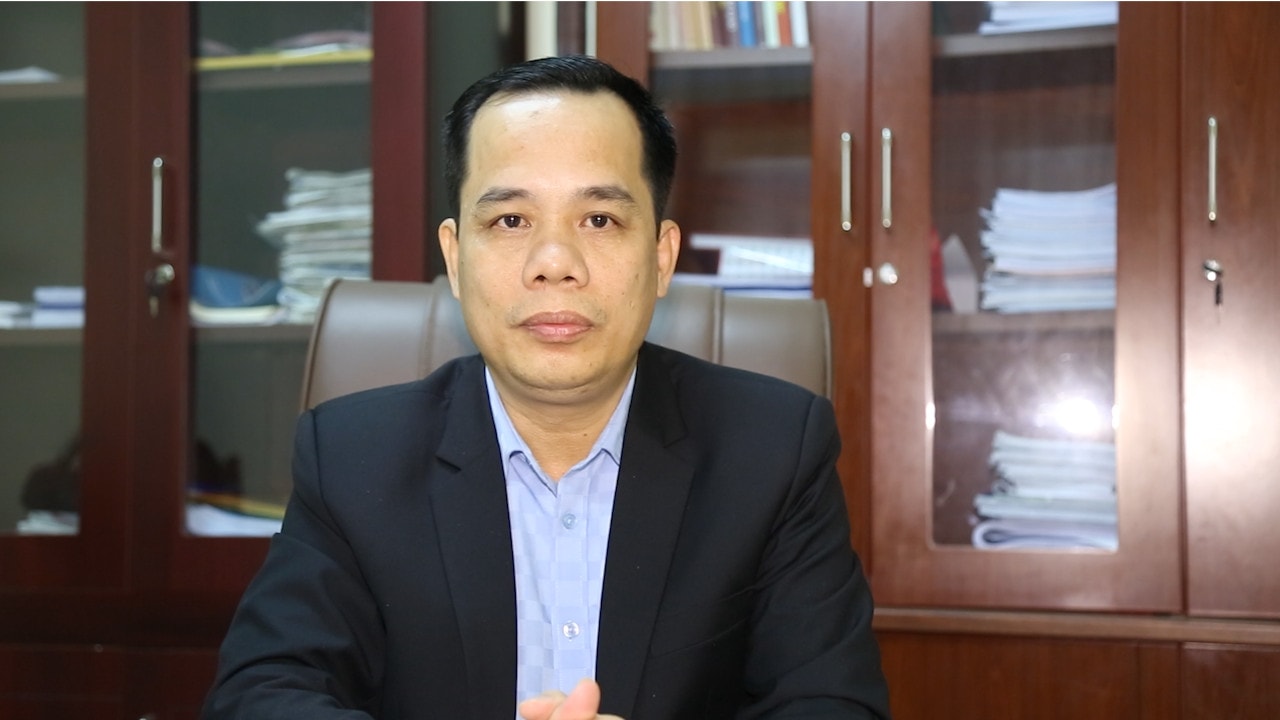 |
Mr. Bui Cong Vinh - Deputy Director of the Department of Culture and Sports. Photo: Minh Quan |
Moreover, turning to the source has become the consciousness of Vietnamese people: "When drinking water, remember the source", "When eating fruit, remember the person who planted the tree". Therefore, festivals are always associated with the pilgrimage process towards the ancestral land, the sacred land...
Besides, festivals play a role in balancing spiritual life. That is the life of people oriented towards the sublime, sacred "truth, goodness, beauty" that people admire, aspire, worship, including religious beliefs and faith. Thus, religion and faith belong to spiritual life, however, not all spiritual life is religion and faith. Traditional rituals and festivals in Nghe An have contributed to satisfying the spiritual needs of the people. And festivals are an activity that brings people back to a state of "sublimation", from worldly life to existence.
Festivals also have the value of community cohesion. Any festival is an activity of a certain community of people, which can be a village or commune community (village festival), a professional community (professional association), a religious community (temple festival, pagoda festival, church festival), an ethnic community (Hung Temple festival) and smaller occasions such as ancestral worship... Festivals are occasions to demonstrate the strength of the community and are the glue that creates community cohesion.
On the other hand, festivals also have the value of cultural enjoyment and tourism development. Many traditional festivals in Nghe An today still preserve many elements of cultural identity, passed down for hundreds of years such as Con Temple Festival, Nine-Room Temple Festival, Nguyen Xi Temple Festival, Ca Temple Festival, Qua Son Temple Festival... Traditional festivals are also an opportunity for people and tourists from all over to enjoy traditional cultural values rich in identity, such as folk games, performances, and traditional sports of the nation.
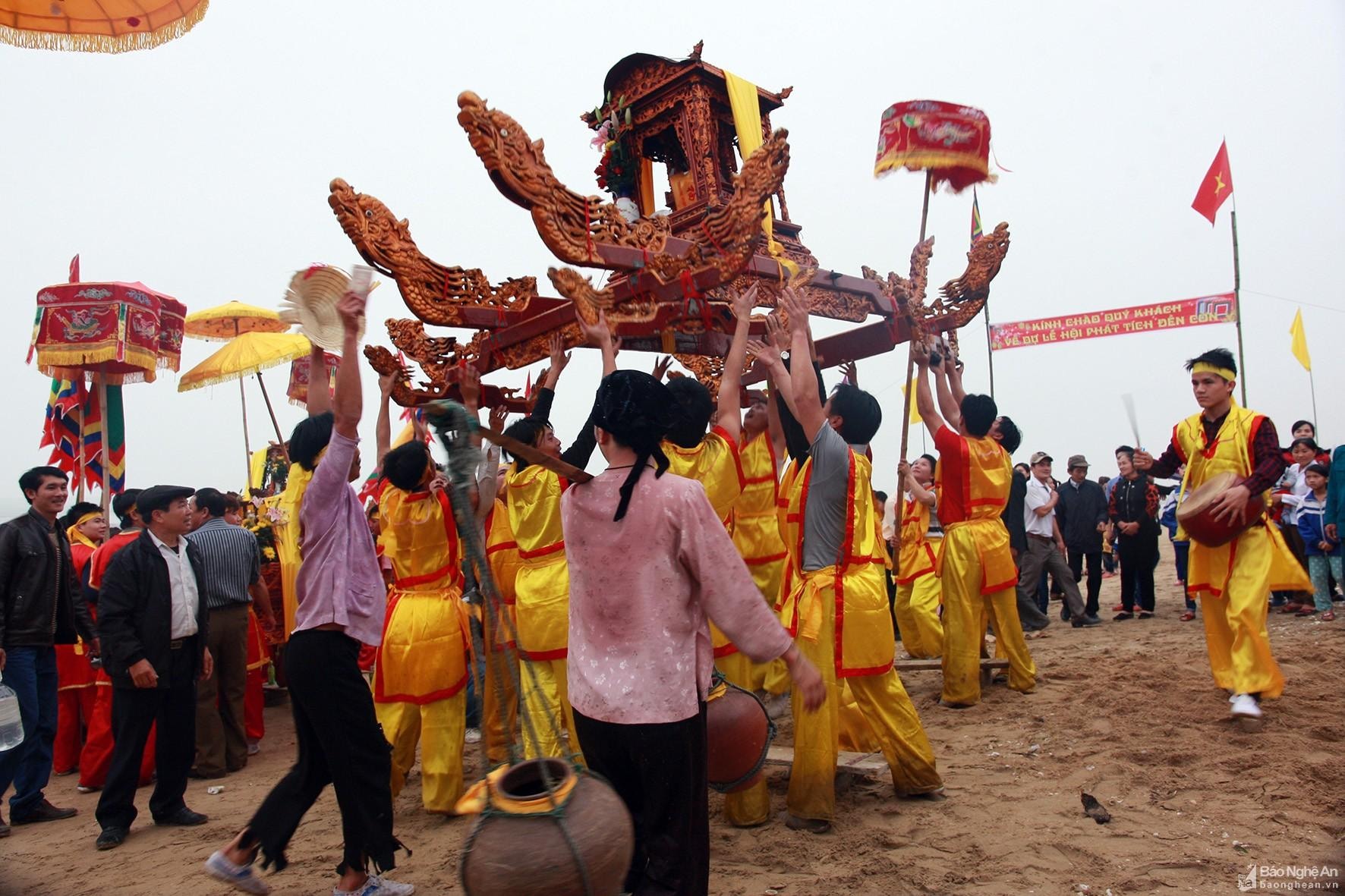 |
| The palanquin procession at Con Temple Festival (Hoang Mai town). Photo courtesy: Nguyen Book |
Traditional festivals in Nghe An take place almost all year round; it is the diversity of cultural activities in festivals in Nghe An that makes the festival space always fresh and joyful, expressed through the ever-changing festival script, creating great attraction for tourists. When participating in festivals, people and tourists from all over the world can observe, receive and enjoy the cultural values of the community, so that they are aware of their role and responsibility in preserving and promoting the cultural values of their ancestors for future generations.
Reporter: Nghe An is known as a miniature Vietnam with a treasure trove of traditional folk festivals that are diverse, rich and imbued with national cultural identity. In recent years, Nghe An province has also paid attention to directing, restoring, maintaining and promoting the historical and cultural values of traditional festivals. Could you please be more specific about this and the province's festival organization plan this year?
Mr. Bui Cong Vinh:According to the inventory of intangible cultural heritage in the period 2011 - 2021, the whole province has 463 heritages in the list of intangible cultural heritage inventories, of which, there are more than 90 festivals (traditional festivals account for more than 90%) mainly taking place in communes, hamlets, villages, and hamlets... with limited space and scale.
To date, there are 7 festival heritages that have been listed by the Ministry of Culture, Sports and Tourism in the list of National Intangible Cultural Heritage, including: Nine-Room Temple Festival, Con Temple Festival, Thanh Liet Temple Festival, Qua Son Temple Festival, Xang Khan Ritual, Hoang Muoi Temple Festival, Bach Ma Temple Festival.
tickleng with traditional festivals, cultural festivals, village festivals, clan festivals, the procession of the Certificate of Recognition of Historical - Cultural Relics, cultural titles, folk rituals of ethnic minorities associated with customs and practices of the nation that have been restored and organized by the people have contributed to the development of cultural life at the grassroots level.
In 2023, after more than 2 years of interruption due to the impact of the Covid-19 pandemic, festival activities have been proactively included in specific plans by localities. In order to effectively and efficiently implement state management of festivals, the Department of Culture and Sports issued Notice No. 4069/TB-SVHTT dated December 20, 2022 on the plan to organize festivals in 2023; Document No. 11/SVHTT-NSVHGĐ dated January 4, 2023 on strengthening festival management and organization; Decision No. 53/QD-SVHTT dated January 11, 2023 and Decision No. 54/QD-SVHTT dated January 11, 2023 of the Department of Culture and Sports on inspecting compliance with legal provisions on festival management and organization.
Accordingly, in 2023, the whole province will have 29 festivals included in the management list, of which 20 festivals take place in Spring (January-March of the lunar calendar), the rest take place at other times of the year (from April-October of the lunar calendar). Localities will have specific plans for each festival to ensure organization according to the principles prescribed by law, which are solemn, practical, effective, and appropriate to the scale and content of the festival.
PV: So how has the management and organization of festivals in the province been recently, sir?
Mr. Bui Cong Vinh:In recent years, the management and organization of festivals in the province has been focused on by the Department of Culture and Sports together with the People's Committees of districts, cities and towns to ensure proper implementation in accordance with the provisions of Decree No. 110/2018/ND-CP dated August 29, 2018 of the Government. Festivals are held safely, economically, effectively and practically, contributing to educating and orienting people to form noble behaviors, attitudes and awareness, preserving traditional culture, meeting the needs of people to enjoy and participate in community cultural activities.
 |
| A large number of people and tourists from all over the country come to the Ong Hoang Muoi Temple Festival in 2022. Photo: Minh Quan |
However, there are still some limitations that need to be overcome in the management and organization of festivals. Nghe An festival culture is diverse in terms of regional, ethnic identity, but some festivals, especially those in the plains, are mostly organized according to a common motif, with overlapping scenarios; the in-depth study, research, and exploitation of festival features and the cultural identity of each locality to create differences in festivals and highlight festivals has not been thoroughly implemented.
Some tourists still lack awareness in keeping the environment clean despite the signs and reminders from the organizers. Incense burning is still illegal; goods and services at the festival area are not arranged and placed properly.
Propaganda work at some festivals has not been promoted and is not effective in mobilizing people to practice civilized lifestyles during festivals, preserve the solemnity of places of worship; and promote people to understand the historical and cultural values of festivals and relics.
PV: After many years of interruption due to the Covid-19 pandemic, this year promises to be a bustling and joyful festival season. However, there will be many things to keep in mind in organizing the festivals to ensure they take place safely, with rich identity and in a healthy manner. Could you elaborate on this issue?
Mr. Bui Cong Vinh:Traditional festivals are occasions for people to exchange and sympathize, to pass on morals, emotions, good customs and noble aspirations. At the same time, traditional festivals are also occasions to bring people spiritual peace, to put aside or forget daily worries to return to their roots, to return to nature.
In order for traditional festivals to take place safely, rich in identity and healthily, it is necessary to first of all strengthen the effectiveness and efficiency of state management, fully grasp and strictly implement the Party's directives and legal regulations on festivals; strengthen propaganda work and have close coordination between units, functional forces and localities in organizing, inspecting and checking to prevent and strictly and promptly handle violations in security, order, traffic safety, fire prevention and fighting, food safety and hygiene, implementing a civilized lifestyle in festivals, preventing and fighting against Covid 19 epidemic... associated with protecting relics and scenic spots to ensure absolute safety for festival participants.
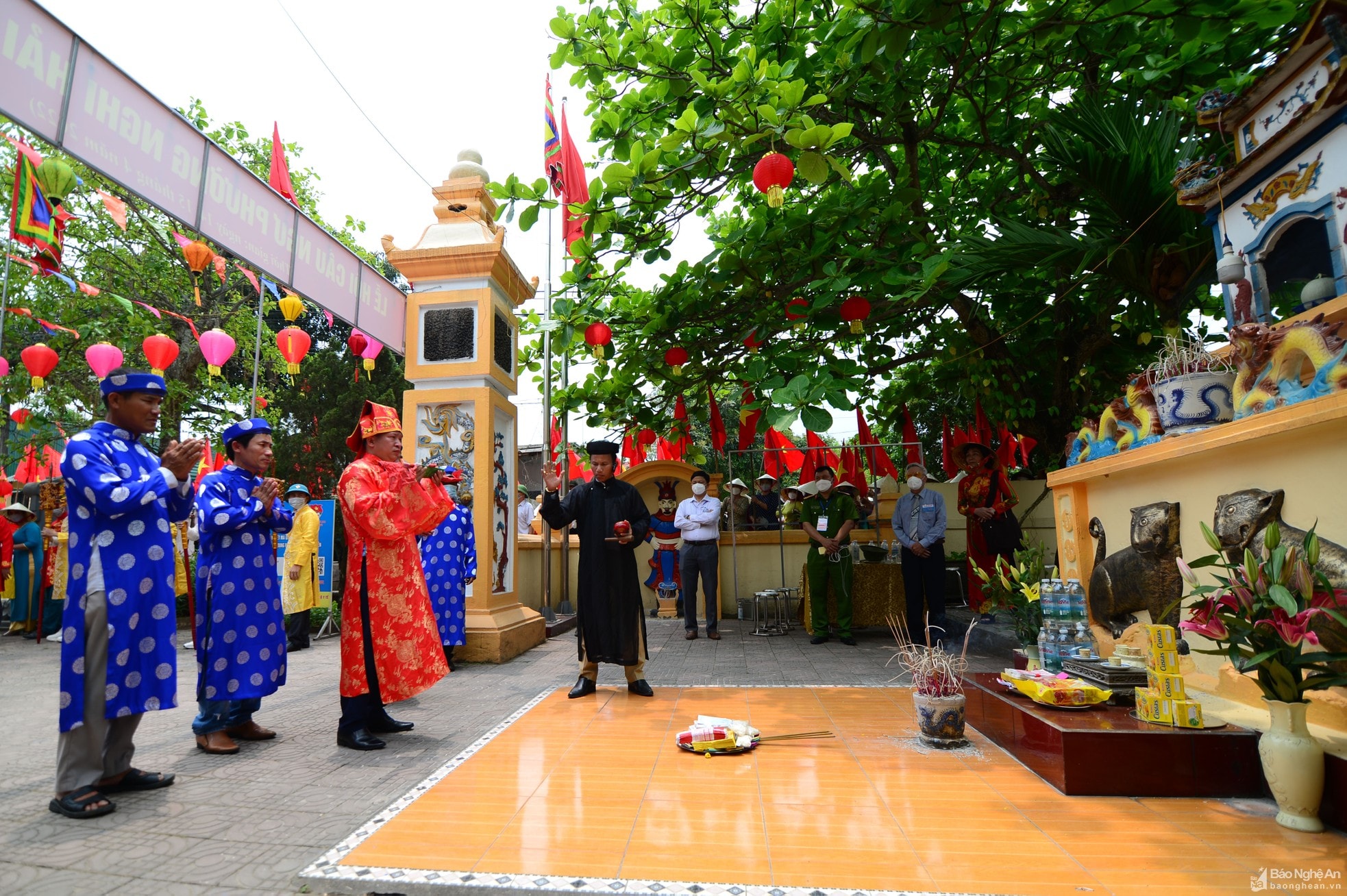 |
A ritual in the fishing festival in Cua Lo town: Photo: Phan Tat Lanh |
In addition, to make the festival an attractive “spiritual food” for tourists associated with tourism attraction, the organization must ensure the original value of the festival; traditional festivals must be organized according to their true nature, historical and cultural significance. At the same time, promote the socialization of resources in organizing festivals; practice thrift and combat waste.
Each citizen is the subject of the festival, therefore, it is necessary to promote people's participation in "ritual" and "festival" activities so that the festival is truly a unique community cultural activity to preserve, maintain, promote traditional values and enrich new values in building today's cultural life.
PV: Thank you for the interview!

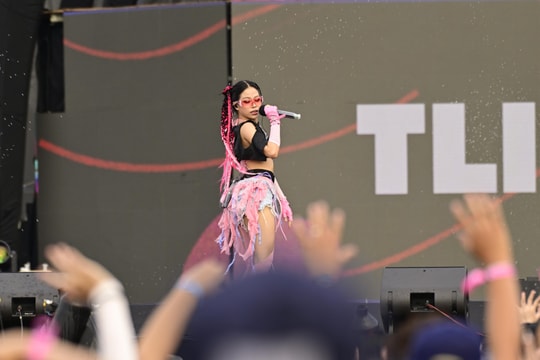
.jpg)
.jpg)

